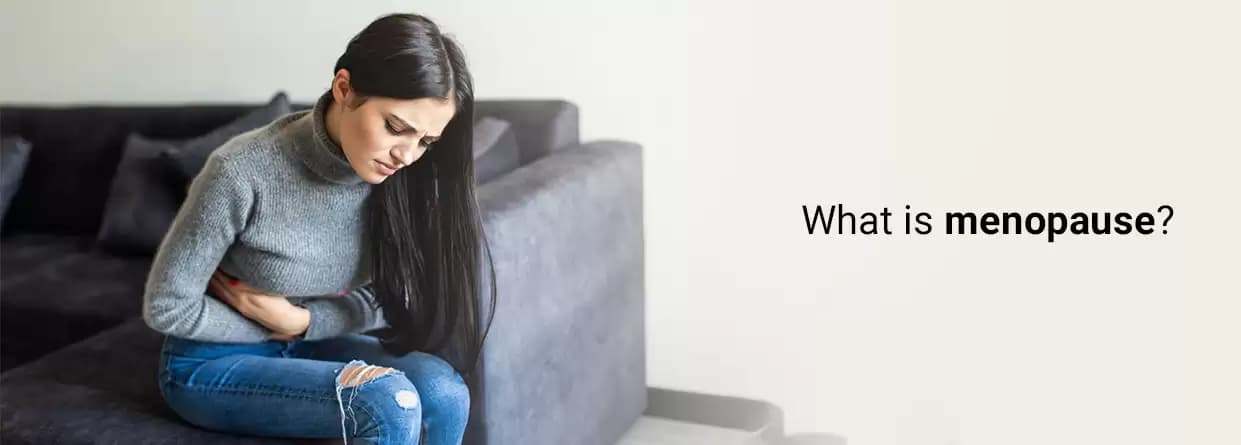
Menopause age usually varies in women depending on their lifestyle, medical health, the existence of any disease or condition, etc. Menopause causes physical symptoms such as hot flashes, and emotional symptoms which can impact the quality of your sleep, and affect your emotional and mental well-being.
Menopause marks the end of a woman’s menstrual cycle. It is a natural part of ageing that usually occurs in women above 50 years of age. While the topic of menopause often comes into conversation during work or outside, it is mostly discussed in an abstract way. Most people think menopause is exclusively associated with biological changes in women, however, it also revolves around the impact it has on their emotional and psychological well-being.
Menopause age usually varies in women depending on their lifestyle, medical health, the existence of any disease or condition, etc. Menopause causes physical symptoms such as hot flashes, and emotional symptoms which can impact the quality of your sleep, and affect your emotional and mental well-being. If you are looking to gather information regarding menopause and the impact it has on women, this blog can provide a reference for the same. However, this blog does not replace the significance of a doctor’s consultation. So consult a gynecologist for more information and treatment.
Natural menopause indicates the end of reproductive years without any type of medical treatment. Phases of menopause occur gradually in three stages - Perimenopause or menopause transition, Menopause, and Postmenopause.
|
Stages Of Menopause |
Age (Average) |
Symptoms |
|
Perimenopause |
Mid 30’s to Late 40’s |
|
|
Menopause |
Above 50 years |
|
|
Postmenopause |
Late 50’s |
|
Women are born with eggs which are stored in their ovaries. The ovaries make estrogen and progesterone which control the menstruation cycle and ovulation. Menopause occurs when the ovaries are unable to release an egg each month which stops the menstruation process. While aging is the prominent cause of menstruation, there are other factors that can also trigger menopause. Here are some common causes of menopause -
There are several factors that influence a woman’s age at menopause. Heredity is one of the most common factors which can interfere with menopause. ‘When Will I Reach Menopause?’ While it is a question most women wonder, especially if they are planning a family, it is important to consult the doctor for accurate diagnosis and treatment if required.
Some women who hit menopause during their early 40s are most likely to pass it on to their offspring. On the other hand, some women may not reach menopause until they are 60 years old. While there is no way to calculate menopause age exactly, you can undergo several tests which can help determine the time period around which you may hit menopause.
Menopause occurs naturally and so, some symptoms usually disappear over time. However, if the symptoms interfere with your daily life and become severe, you must consult the doctor. The doctor may recommend menopause treatment methods such as -
Menopause is a natural part of the aging process in women. Depending on your lifestyle habits, daily routine, and heredity, menopause can hit women naturally at different ages, but it usually occurs during their late 40s. Several symptoms associated with menopause can impact the quality of life and therefore must be treated.
One of the common problems during menopause is hot flashes, which is a sudden feelings of warmth in the upper body. It is important to be open to your healthcare professional regarding your menopause symptoms and how you can best manage them.
FAQs
No, menopause indicates the end of the menstrual cycle which means women can no longer get pregnant naturally.
No, menopause marks the end of the menstruation cycle which means you will not be able to experience periods or pregnancy. However, if you are experiencing blood, contact a doctor regarding the same.
A hot flash is the sudden sensation of warmth in the upper body which causes redness over the face, neck, and chest. A hot flash during menopause can also cause sweating, and if you lose too much body heat, you might feel chilled afterward.
Hormone changes in several women can result in weight gain. As you get older, you might start to lose muscles resulting in increased body weight.
The possible health risks of hormone therapy include -
Yes, the probability of several health risks after menopause increases. Here are some complications which can cause long-term health problems -
Written and Verified by:
-(1).webp&w=256&q=75)
Dr. Manjari Chatterjee is a Consultant Obstetrician & Gynaecologist Dept. at CMRI, Kolkata with over 15 years of experience. She specializes in high-risk obstetrics, infertility procedures, and complex gynaecology including IVF, fibroid & ovary surgeries.
Similar Obstetrics and Gynaecology Blogs
Book Your Appointment TODAY
© 2024 CMRI Kolkata. All Rights Reserved.